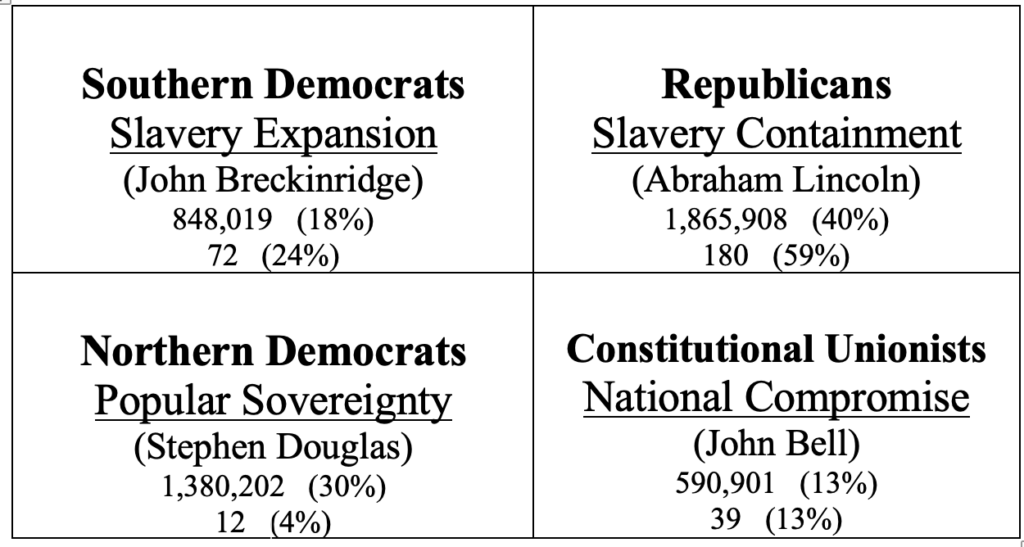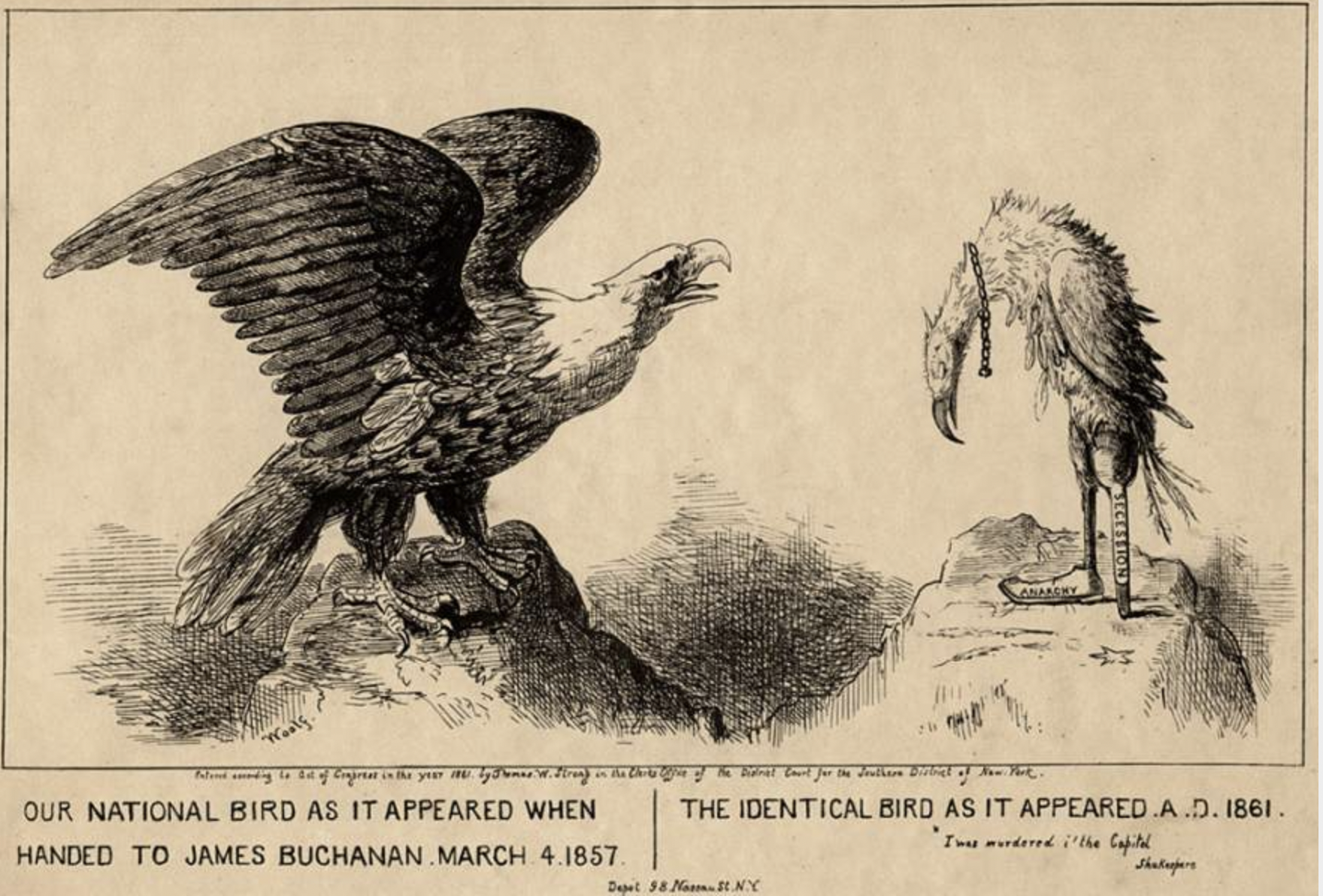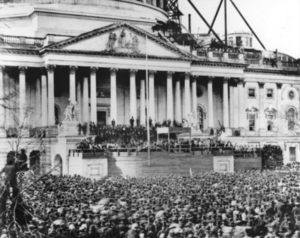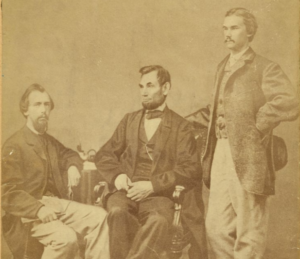Election of 1860

Secession (December 1860 to February 1861)

“The fact is that our Union rests upon public opinion, and can never be cemented by the blood of its citizens shed in civil war. If it can not live in the affections of the people, it must one day perish. Congress possesses many means of preserving it by conciliation, but the sword was not placed in their hand to preserve it by force.” —James Buchanan, Annual Message, December 3, 1860
Lincoln’s Inaugural, March 4, 1861 (public)
“I have no purpose, directly or indirectly, to interfere with the institution of slavery in the States where it exists. I believe I have no lawful right to do so, and I have no inclination to do so.”
–First Inaugural Address, March 4, 1861, quoting from the 1858 Lincoln-Douglas debates and paraphrasing from the 1855 Quincy (IL) platform
“Plainly, the central idea of secession, is the essence of anarchy. A majority, held in restraint by constitutional checks, and limitations, and always changing easily, with deliberate changes of popular opinions and sentiments, is the only true sovereign of a free people. Whoever rejects it, does, of necessity, fly to anarchy or to despotism.” —Lincoln’s First Inaugural Address, March 4, 1861
Frederick Douglass on Lincoln’s 1861 Inaugural
“Making all allowance for circumstances, we must declare the address to be but little better than our worst fears, and vastly below what we had fondly hoped it might be. It is a double-tongued document, capable of two constructions, and conceals rather than declares a definite policy. No man reading it could say whether Mr. Lincoln was for peace or war, whether he abandons or maintains the principles of the Chicago Convention upon which he was elected….The South want to extend slavery, and the North want to confine it where it is, ‘where the public mind shall rest in the belief of its ultimate extinction.’ This was the question which carried the North and defeated the South in the election which made Mr. Abraham Lincoln President. Mr. Lincoln knew this, and the South has known it all along; and yet this subject only gets the faintest allusion, while others, never seriously in dispute, are dwelt upon at length.” –Douglass’ Monthly, April 1861
May 7, 1861 (Inside the White House)
“We must settle this question now, whether in a free government the minority have the right to break up the government whenever they choose. If we fail it will go far to prove the incapability of the people to govern themselves. There may be one consideration used in stay of such final judgement, but that is not for us to use in advance. That is, that there exists in our case, an instance of a vast and far reaching disturbing element, which the history of no other free nation will probably ever present. That however is not for us to say at present. Taking the government as we found it we will see if the majority can preserve it.”
–Lincoln quoted in John Hay diary, May 7, 1861


